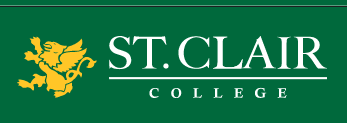This program is for workers who will operate powered lift trucks (Classes 1 to 5) and consists of three distinct components: formal classroom learning; a supervised practical hands-on component with the specific lift truck the worker will use; and a follow-up evaluation.

This program is for workers who will operate powered lift trucks (Classes 1 to 5) and consists of three distinct components: formal classroom learning; a supervised practical hands-on component with the specific lift truck the worker will use; and a follow-up evaluation by an authorized instructor who observes work performance.
In the classroom, participants will first explore the basics of powered lift truck operation including selection criteria, stability, lift capacity and principles of counterbalance theory.
Legislation, guidelines and standards governing the use of powered lift trucks are reviewed including relevant sections in the Industrial Regulations. Participants will discuss the many hazards specific to powered lift truck use in the work environment including the components of an effective powered lift truck pre-start inspection checklist.
Safe operating rules and practices for powered lift trucks will also be identified and discussed. Upon completion of this one-day training program, the Instructor will establish a schedule for participants to complete the mandatory practicum component. This will allow participants to apply the theories discussed to practical workplace situations under supervised and experienced guidance.
The St. Clair College Foundation serves as the primary fundraising body for the College’s general scholarship program. As a registered charitable organization, the St. Clair College Foundation is guided by a volunteer Board of Directors who strive to assist St. Clair College in achieving its vision of "excellence in all we do" while generating philanthropic support for students and their academic pursuits.
With the generous support of our donors, the St. Clair College Foundation provides students with more than $550,000 annually in scholarship awards. Full-time students have access to more than $3 million in financial support through the College’s scholarship, bursary, and award programs.
© 2025 coursetakers.com All Rights Reserved. Terms and Conditions of use | Privacy Policy